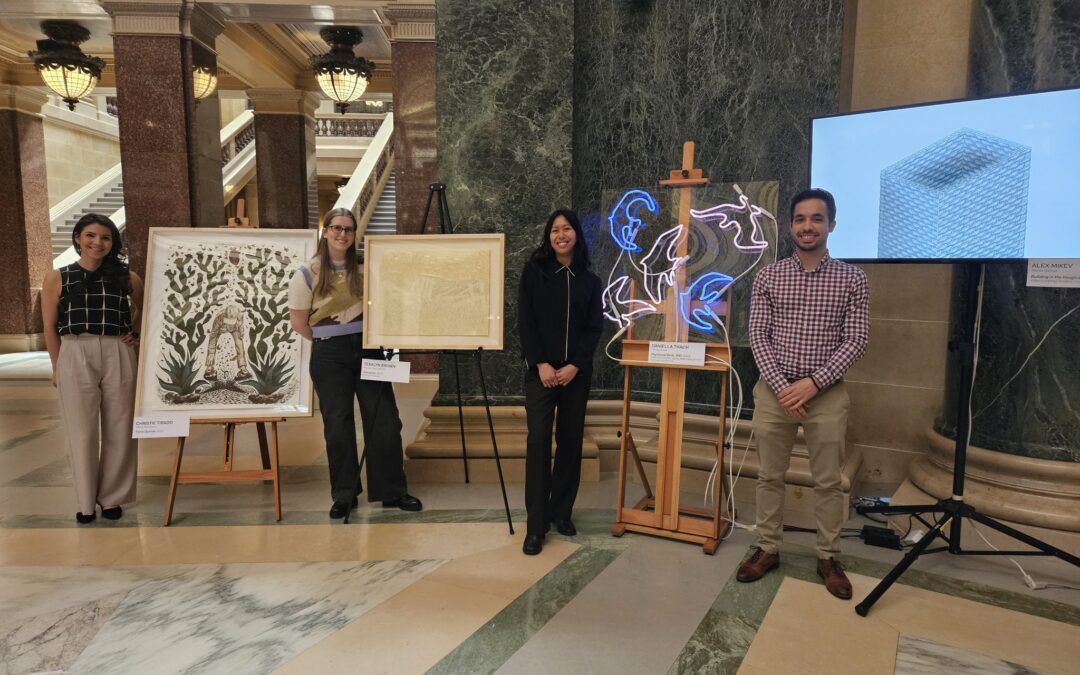As part of the annual UW Day at the Capitol on April 30, 2025, School of Education researchers and faculty were among nearly 300 UW–Madison alumni, students, and staff who provided their unique perspective on the university’s critical role in the future of Wisconsin.
The university’s top capital priorities include securing funding to safely demolish the Humanities Building — which is long past its useful life — and relocate its programs, including Art programs within the School of Education.
Not just a collection of buildings, but a community of people
More than 50 postdoctoral and graduate researchers, including students from the Department of Kinesiology and Department of Curriculum and Instruction, participated in the afternoon’s graduate research showcase in the Capitol rotunda, conveying the value of their work for the people of Wisconsin.
Four graduate fellows and MFA candidates in the Art Department, which is part of the School of Education and housed largely in the crumbling Humanities Building, showed their work in the rotunda and made a strong case for the importance of arts education.
Alex Mikev, a graduate fellow in the Art Department, noted, “Our artists contribute to cultural programming across communities in Wisconsin (and beyond), where families, friends, and peers connect at exhibits, performances, workshops, and more that originate at UW–Madison.”
“It’s vital that legislators recognize and support the spaces that foster national excellence,” stated Christie Tirado, an Education Graduate Research Scholar in UW–Madison’s top-ranked Printmaking program.
“Strong arts funding, especially for public institutions, is essential,” Tirado added. “It ensures that students have access to safe, functional, and inspiring spaces to create, research, and grow. The Humanities Building urgently needs investment. Funding the arts isn’t a luxury. It’s an investment in education, culture, and the future of creative innovation.”
Mary Hoefferle, a member of Art Education teaching faculty, presented a related argument in a faculty flash talk, focusing on the ways her work has placed art teachers in schools all around the state. These educators instill their K-12 students with important skills for the future, from observation to persistence to exploration, in a fun and engaging context.

